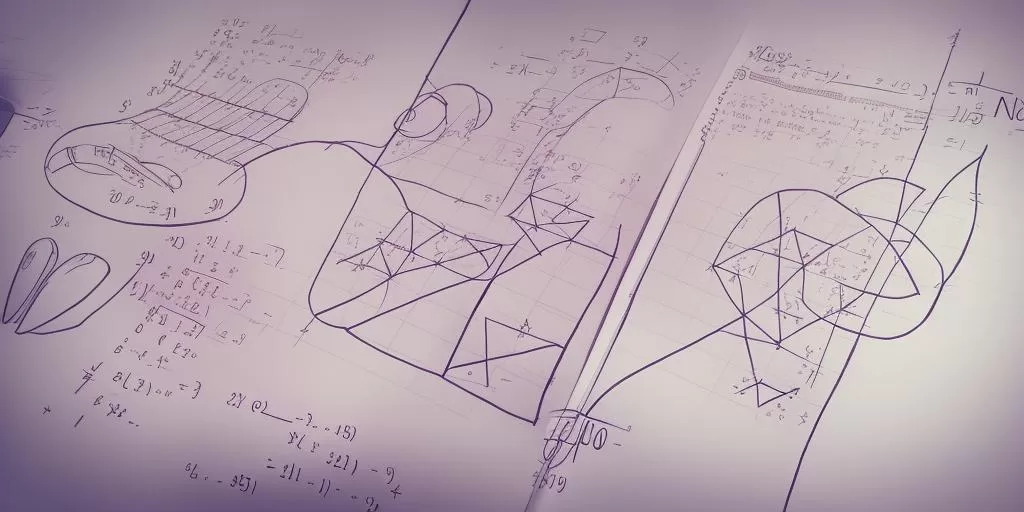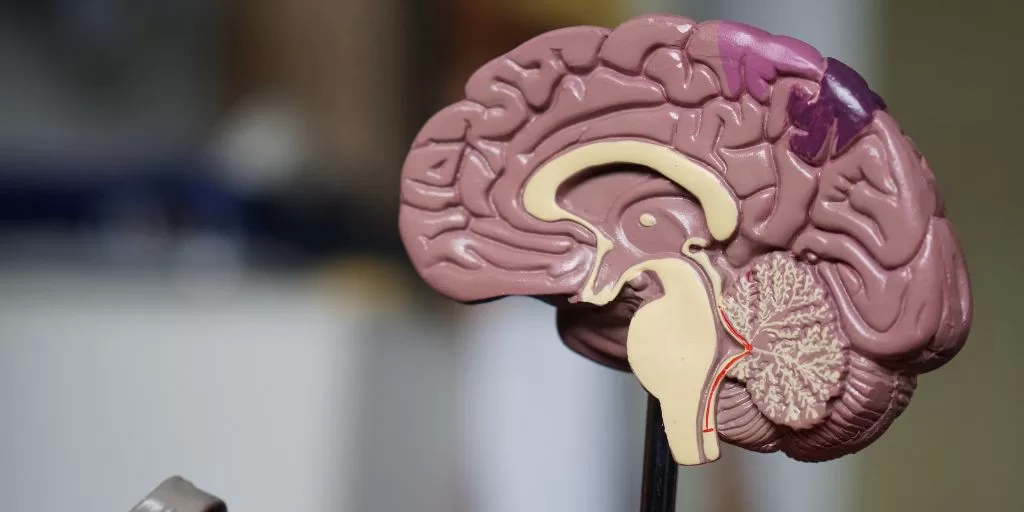Meditation coaching is a powerful tool for transforming the brain and life of individuals. It is an integrated approach to personal growth, based on the ancient practice of meditation. For a long time, meditation has been used as a way to quiet the mind, focus attention, and reduce stress. Through meditation coaching, one can learn how to channel their inner wisdom in order to balance emotions and cultivate meaningful relationships.
Brain training through meditation coaching can help improve mental clarity, support emotional health, and increase focus along with self-awareness while promoting overall well-being. By engaging in regular sessions with a meditation coach, you will gain access to valuable resources that provide guidance on mindful practices such as mindfulness-based cognitive therapy (MBCT) or vipassana techniques (insight meditation). The use of those techniques can positively affect one’s mental clarity and performance. Although some of them were not created strictly to boost mental performance, the “side effects” of using them are invaluable assets to many entrepreneurs, CEOs, and intellectual workers.
Table of Contents
What is Focus?

Focus involves reducing distractions and giving one’s undivided attention to a specific subject or activity. This heightened sense of awareness helps us overcome procrastination, increases productivity, and leads us closer to achieving our individual goals. All by channeling our energy into the task we’re focusing on so we can complete it as fast and as precisely as we can.
Focus is an essential component of our daily lives. It can range from something as simple as concentrating on one task at hand to having a long-term outlook on one’s life goals. In any case, focus requires the human attention span to be enhanced and improved in order to succeed. A person lacking focus will often find themselves jumping from task to task without completing anything or making any progress. To truly get the most out of lives, it is important for individuals to understand how to properly utilize their attention span so that they can focus effectively and improve their performance in mentally challenging tasks.
Factors Affecting Your Focus
There are many factors that can affect our focus and concentration. Boosting attention is key to achieving the highest levels of performance, productivity, and mental clarity. One important factor that influences our ability to stay focused is the amount and type of information we absorb. If we are constantly bombarded with too much information at once, it can be difficult to pay attention to any one thing for a sustained period of time. Another vital factor influencing our mental alertness is maintaining healthy blood sugar levels. Eating balanced meals throughout the day helps keep energy and focus high, whereas skipping meals or eating foods with lots of sugar can lead to fatigue, headaches, and difficulty staying concentrated on tasks (yup, I experienced them myself dozens of times). Additionally, hydration plays a role in focus since dehydration leads to decreased cognitive functions like problem-solving and critical-thinking skills. Insufficient hydration can also cause headaches.
How Improving Your Focus Also Helps Your Memory?
Improving focus and concentration can have a significant effect on memory. Attention and focus are essential for recollection; without them, our memories cannot be formed or retrieved correctly, meaning we will struggle to remember what we just learned. That is why it is so important to find ways to boost attention levels, as this will also result in an improvement of our memory abilities. One way of doing this is by engaging in brain training activities such as puzzles and mentally stimulating games. These activities can help train the brain to concentrate for longer periods at a time and be less easily distracted by outside interruptions. All of that taken together allows us to improve our memory recall so when learning, we can read just once and remember the data forever.
Additionally, we can also benefit from mindfulness techniques such as meditation or deep breathing exercises which help us become more aware of ourselves and our surroundings and reduce stress levels that may cause distractions from focusing on tasks successfully.
What Is Meditation Coaching?

Meditation coaching is a form of holistic health and wellness where a skilled coach helps to guide the individual through various forms of meditation. This can be tailored to suit the needs of the individual, such as their current physical and mental state. For example, if someone has high blood pressure, it would be beneficial for them to learn relaxation techniques or slow breathing as part of their meditation coaching. Through this, they can gain control over their body’s physiological responses and manage them better. On top of this, people with attention span problems may benefit from yoga-based meditations which encourage mindfulness and focus on one thing at a time instead of multitasking.
Emotional balance is another one of the many benefits that come with meditation coaching. For many of us, it can be difficult to keep our emotions in balance, especially when life throws us a curveball. This is why meditation coaching can be such an invaluable resource. Through regular sessions with a trained coach, one can learn how to use visualization and mindfulness techniques to boost concentration and achieve emotional balance.
Meditation coaching helps individuals become aware of their thoughts and feelings and manage them more effectively. With this heightened awareness, it’s easier for the individual to focus on the tasks at hand and improve their concentration levels. Mindful techniques also help reduce stress levels, which further increases clarity of thought processes. By calming the mind from overwhelming emotions, meditation coaches teach individuals how to gain insight into their mental state and make better decisions about how they respond in different situations. the end result is improved self-awareness and mental clarity.
What Is a Meditation Coach?
A meditation coach is a professional who uses active listening skills and focus exercises to help clients reach their mental and emotional potential. With an emphasis on mindfulness, they provide guidance and support to those looking to improve their physical, mental, and spiritual well-being. A meditation coach helps people identify goals that are important to them, develop the necessary skills to achieve them, and make changes in their lives as needed.
The goal of meditation coaching is to help clients find peace of mind by providing personalized advice tailored specifically for them. During coaching sessions with a meditation coach, they may employ techniques such as relaxation techniques like deep breathing or stretching, visualizations, and even focus exercises such as journaling or tailored affirmations which can increase self-awareness and create positive habits.
Meditation coaches can provide invaluable assistance to those who are looking to become smarter. Those who have received coaching from a professional meditation instructor know how valuable the experience can be. Coaching sessions with meditation instructors offer brain training games that help increase intellectual capacity and cognitive skills. The coach will help you identify areas of focus and then guide you through various techniques used to develop better mental clarity, problem-solving ability, creativity, and memory recall. Additionally, coaches will provide encouragement when needed in order for you to make meaningful progress toward your goals.
The benefits of working with a meditation coach extend well beyond becoming smarter. They also help promote a sense of relaxation and mindfulness which can lead to improved emotional well-being and physical health. This, in turn, positively affects the brain and one’s intellectual skills.
How Can Meditation Coaching Help You Improve Your Focus?
Meditation coaching can help improve focus, concentration, and attention. This is because it helps individuals to slow down and become mindful of their thoughts and feelings while they are focusing on a task. By becoming aware of our thoughts in this way, we can more easily identify distractions that might be preventing us from staying focused on the task at hand. With guidance from a qualified meditation coach, people can learn techniques to stay present instead of letting their minds drift away from the present moment and what’s important right now (e.g. the project we’re working on).
In addition to helping with attention tasks such as studying or working, meditation coaching also improves overall concentration levels. In essence, it teaches people how to be mindful and deliberate in their decision-making processes so that they can remain focused throughout their day-to-day activities without succumbing to fatigue or boredom.
Train Your Brain to Focus Better With Meditation

Meditation is one of the best ways to improve concentration. It can help increase focus, clarity, and alertness while calming the mind. To start a meditation practice, find a quiet space where you won’t be disturbed. Sit in an upright position with your eyes closed and focus your attention on your breath. Visualize the air entering and exiting your body as it moves through your lungs and out of your mouth. When thoughts enter your awareness, acknowledge them before letting them drift away and refocus on your breathing. Taking deep breaths can also help clear mental fog and improve concentration during meditation sessions.
Now, do the same, but visualize the oxygen fueling your brain as you breathe. Feel the muscles around your neck and head relaxing, and the blood rushing through your blood vessels and delivering the blood to your brain. As the blood reaches your brain, so does the oxygen along with other nutrients. Focus on the feeling and realize the peaceful warmth embracing your head. When you are done, your head should feel physically warmer. This is because by relaxing the tight muscles around your neck, face, and head, you are improving blood circulation to the area. When you complete the exercise, you should be much calmer, more focused, and in control of your thoughts. Notice how it helps you concentrate during your daily activities. This exercise is ideal if you are just about to start studying or working on a complex and demanding project.
If you are looking for focus exercises beyond traditional meditation, there are many different options available. One potentially beneficial exercise is to practice mindfulness throughout the day. This means being present in the moment and paying attention to what you are doing without letting other worries or thoughts get in your way and distract you. By remaining mindful of your actions and attentively engaging in each activity, you can stay focused on a single thing at a time and avoid distractions. Another effective focus exercise is to take periodic breaks throughout the day. Whether it be taking a few minutes away from work to go for a walk or simply sitting quietly with your eyes closed, these short moments of rest will help refocus and recharge your energy levels. Finally, writing down thoughts that come into your head during the day can also be very helpful in boosting focus while you’re working on tasks that require intense concentration.
You also must remember that committing to regular practice is key for increasing concentration over time with meditation; set aside at least fifteen minutes daily if possible. Start by taking notice of how you feel after each session – what did you learn or discover? In the beginning, it might seem unclear but with time, you will be able to spot what have you learned through the process of self-analysis.
How to Defeat Racing Thoughts and Inner Dialogue?
For many people, racing thoughts and inner dialogue are ever-present. This can be a significant source of stress in our lives and can interfere with our ability to focus on important tasks. Fortunately, there are ways to defeat this obstacle and gain peace of mind. One way is to practice daily focus exercises designed to help strengthen the brain’s capacity for staying focused. Daily brain exercises such as practicing memory games or puzzles challenge your concentration skills and help you improve your focus. These activities will help build resilience against distractions caused by racing thoughts or inner dialogue and give you greater control over your attention span. Furthermore, being mindful of what triggers these intrusive thoughts or conversations will enable us to identify when they start and take the steps necessary to stop them before they become overwhelming. By implementing these strategies into our lives we can regain a sense of clarity and balance in our lives. The last thing to remember is not to fight your mind back. Let it be, let the thoughts flow through you. Accept them without attachment and let them drift away. Imagine they are internet trolls – if you stop paying attention to them, they will eventually stop.
Think of Your Mind as a Muscle
Our minds are like any other muscle in our bodies – they need to be trained and exercised in order to stay at peak performance. This is especially true for those of us who are constantly multitasking or using our brains for problem-solving activities. Good brain exercises can help keep our minds sharp, creative, and engaged.
Practicing mindfulness techniques such as deep breathing and meditation can help reduce stress levels which can affect cognitive functioning. Furthermore, learning a new language or instrument may provide greater mental stimulation as these activities require memorization and practice of specific skills which challenges the nerves within the brain leading to enhanced connections between neurons.
Another way to reach your brain training peak (apart from mind-stimulating games) is through reading books. Although it’s true that mind games improve brain function, books can also teach you many new things and help you deal with ADHD (Attention Deficit Hyperactivity Disorder), depression, anxiety, or other mental health conditions. One book that can help you improve concentration and attention span is “Boost Your Brain Power in 12 Weeks“. This book contains several focus exercises that will provide you with instructions on how to train your brain to focus and think faster.
Develop Your Own Concentration Training Program
If you’re still wondering how to make your brain focus for longer, you can try creating your own concentration training program. It’s almost like a coaching experience, except you are coaching yourself. Developing your own concentration training program can be a great way to make sure your brain is focused and ready for any type of task. The best place to start is by discovering what strategies work best for you and then creating a plan that incorporates those strategies.
The program should consist of mind-stimulating games. Those memory and brain exercises can be divided into categories (each having a separate objective). You can even divide them into brain exercises for children and brain exercises for adults (if you ever want to start selling your program) or simply split them into categories based on their function, such as exercises to improve concentration, exercises to increase your attention span, or exercises to help you practice active listening skills. In case you’re wondering what that is, active listening skills definition is observing the verbal and nonverbal messages being sent, and providing appropriate feedback. Remember, being an attentive listener is an essential skill for anyone whose job relies on communicating with others.
All in all, if you’re aiming to work on your own, creating a concentration training program may be the way to go. You will be able to tailor it to your needs and make sure the exercises are well-adjusted to your style.
How to Train My Brain to Focus? – 7 Tips to Improve Your Concentration

Maintaining concentration and focus can be a challenge in this day and age. With so many distractions, it’s easy to become overwhelmed and lose sight of our goals. Thankfully, there are several simple steps we can take to improve our concentration. Continue reading to find out how to train your mind to focus and what helps the brain focus specifically.
Practice Mindfulness
Practicing mindfulness to improve concentration is a great way to focus and enhance the quality of one’s work. By taking time out of our day to observe our thoughts, feelings, and physical sensations, we can become more aware of how these things influence our performance in the workplace or at school. Mindfulness exercises such as mindful breathing, body scans, and guided meditation allow us to become more aware of what we’re thinking and feeling while heightening our self-awareness. This type of awareness can help us better regulate our emotions which can then lead to improved productivity and concentration.
In addition, mindfulness practices have been shown to reduce stress levels which can be distracting for those trying to stay focused on the tasks at hand. It also helps us appreciate moments both large and small throughout the day rather than getting lost in worry or anxiety from multi-tasking between projects and ending up with no results.
If you want to start practicing mindfulness, you can also sign up for meditation training online and start with simple focus exercises or brain training games to improve your concentration and wait for your coach to introduce more complex and demanding exercises as you gain more experience.
Find Your Peak Hours and Establish a Schedule
It is important to identify the time of day when concentration levels are at their peak and then establish a schedule accordingly. This will allow for more effective use of our time, a greater focus on tasks, and improved productivity. Identifying peak hours is not difficult. All it requires is that we closely observe ourselves for a few days and take careful note of our attention span during different times. We may even need to experiment with different schedules before finding one that works best for us.
Once our peak hours have been identified, establishing an organized schedule can help make sure that we stay focused on the task at hand without too many distractions. Our daily work routine should be broken down into lesser chunks so that there are clear goals and manageable timelines set in place. Furthermore, breaks should be taken between tasks to allow ourselves some time to relax and mentally reset before plunging into the next task. This is how our brains are programmed to work and there are no benefits in trying to fight it. Work as long as you can, take a break, reset, and repeat the process.
Avoid Multitasking
In this day and age, multitasking has become the norm. We are continuously using our phones while working on a project or engaging in a conversation. This constant switching between tasks can be quite overwhelming and take away our focus and concentration. In order to maximize productivity, it is important to avoid multitasking so we can pay 100% of our attention to what we’re doing and maximize the output.
One of the best ways to improve one’s concentration is to eliminate distractions while engaging in an activity. It may be beneficial to turn off all devices and close down unnecessary tabs on your computer when focusing on completing a task. It might sound simple but by eliminating what can potentially take your eyes off your project, you are reducing the chance of drifting away and ending up doing everything else but not the work.
Do What You Can and Take a Break
When you’re struggling to concentrate, it can be easy to think that taking a break will make things worse. But actually, when used in the right way, breaks can be incredibly beneficial for your concentration. Taking regular breaks allows you to give your mind an opportunity to relax and recharge, helping to restore focus and motivation by refueling your brain.
It’s important not to get overwhelmed by all of the tasks on your plate; instead, focus on what you can do at any given moment. Breaking down large goals into smaller, achievable steps and giving yourself permission for regular breaks enables better mental performance and concentration abilities throughout the day. Therefore it is important to stay mindful of how much effort you are putting into each task without burning yourself out so that you don’t lose momentum in completing them successfully.
Improve Your Sleep
Getting a good night’s sleep is essential for our physical and mental health. Despite this, many of us still struggle to achieve adequate rest. Poor sleep can be hugely detrimental to our ability to concentrate and focus (human attention span depends on sleep hygiene), making it difficult to carry out even the most simple tasks. Improving our sleeping habits can have an overwhelmingly positive effect on both body and mind.
There are several ways in which you can improve your sleep and ultimately your concentration levels. Firstly, establishing a regular bedtime routine will help train the body into recognizing when it’s time for rest. Secondly, avoiding caffeine late in the day is important as its stimulatory properties may keep us alert at night time when we should be sleeping. Lastly, it’s important to leave all the exciting things (such as gaming or watching action movies) alone at least an hour before you go to bed to not get yourself too hyped up before trying to fall asleep.
Spend Time in Nature
Spending time in nature has the power to boost concentration and focus. Taking a walk in a park or spending time outdoors allows us to step away from technology and distractions, enabling us to gain clarity and perspective. People who spend time in nature have more self-discipline, increased memory capacity, and improved attention span. Nature provides a calming environment that encourages contemplation and introspection because, without external noise or stimulation, it’s easier for us to reach deep within ourselves.
We can boost our concentration even further by focusing on natural elements like the sun setting over a lake, the sound of leaves rustling in the wind, or clouds passing overhead. These activities allow us to be present with our thoughts without worrying about what we should do next or getting distracted by emails or messages on social media. Repetitive activities such as taking a walk and counting the steps can also help.
Improve Your Nutrition
Consuming a nutritious diet is one of the most important steps to take in order to boost concentration. Good nutrition is essential for providing our brains with the fuel it needs in order to focus, think clearly, and remain alert. Eating healthy meals that contain balanced proportions of carbohydrates, proteins, and fats as well as vitamins and minerals can help improve mental clarity and focus.
Whole-grain carbohydrates are an excellent source of energy for both the body and brain, as they release glucose gradually into our bloodstream over a longer period of time. This helps prevent drops in energy levels which can lead to reduced alertness and concentration. Proteins such as lean meats, fish, nuts, beans, and lentils are very beneficial for cognitive functions as they contain amino acids which form neurotransmitters that help increase mental alertness.
Vitamins and minerals are essential components of a healthy diet, and their impact on concentration is well-documented. Studies have shown that those who consume the recommended daily intake of vitamins and minerals can experience improved mental clarity, focus, and the ability to stay alert. This is especially true for students who need to concentrate in order to excel academically or for professionals who must be productive throughout their workday. The consumption of B vitamins has been positively correlated with enhanced cognitive capacity, including improved memory recall times as well as more complex problem-solving skills. Vitamin D has also been found to facilitate better cognitive function due to its ability to influence how neurons communicate with each other in the brain.
In addition, research indicates that certain minerals can support better concentration abilities as well. Iron helps oxygenate blood cells which then boosts brain activity and can sharpen thinking processes.
How to Learn Meditation by Yourself?

Learning meditation online is becoming really popular nowadays as it offers a convenient and flexible way to access the physical and mental benefits of this ancient practice. There are many different ways to learn meditation online, depending on your goals and preferences. For example, guided meditation classes may be available through video conferencing or audio recordings. Alternatively, there may be written materials available to provide instruction in techniques such as breathwork or visualization exercises. Additionally, there are numerous apps that can help you practice mindfulness when you’re feeling overwhelmed or just need a few minutes of quiet reflection during the day.
If you want more information on how to learn meditation by yourself, check out this beginner meditation guide.
Conclusion: Why Should You Start a Meditation Coaching Program?

Meditation training programs provide numerous benefits for both physical and mental health. Studies have shown that regular meditation can reduce stress, improve memory and focus, lower blood pressure, decrease anxiety, and even help with chronic illnesses. Meditation training programs can prove the participants with the tools they need to make themself smarter and wiser.
Programs usually involve instructions on how to meditate properly and lead guided sessions to help beginners get started. During these sessions, people learn different techniques like breathwork or body scans that can help them cope with stress or difficult emotions. This, in turn, helps them clear their minds and boost their focus as well as productivity. As the training progresses, participants gain an understanding of the power of meditation as well as its potential positive impacts on emotional regulation, well-being, and their focus abilities.
If you are looking for a fulfilling and meaningful way to invest in your health and well-being, you should consider joining a meditation coaching program. Meditation has been used for centuries as a tool to foster physical and mental balance, reduce stress levels, and cultivate clarity of thoughts. Just make sure your coach has passed through appropriate meditation coach training or holds a mindfulness coach certification. Also, be aware that your ability to focus will improve only if you pay the attention to specific focus exercises (memory and brain exercises). Meditating for relaxation is good but if you are looking for tangible results, you actually have to practice the exercises and not just relax before sleep.




